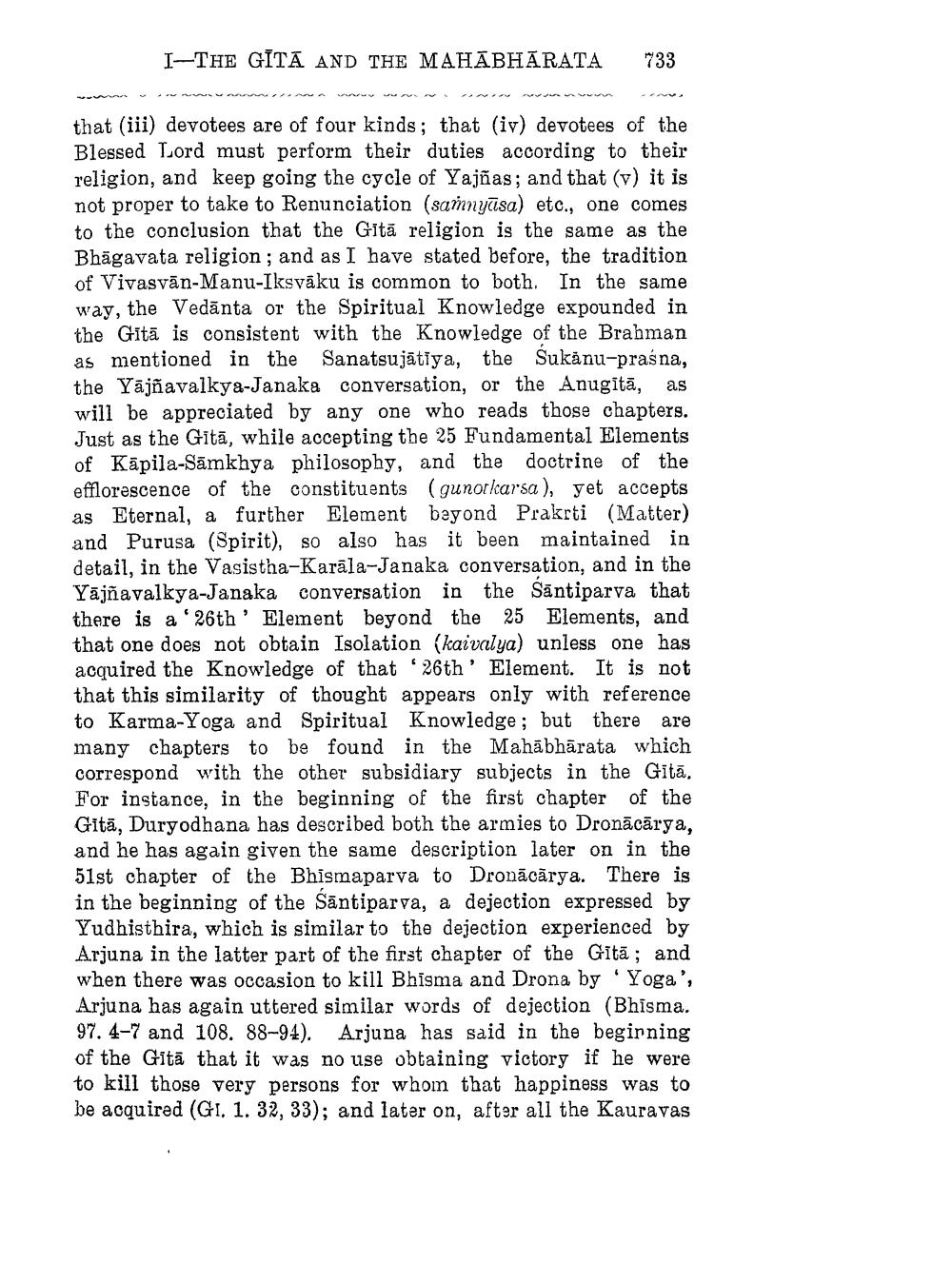________________
I--THE GITA AND THE MAHABHARATA
733
that (iii) devotees are of four kinds; that (iv) devotees of the Blessed Lord must perform their duties according to their religion, and keep going the cycle of Yajñas; and that (v) it is not proper to take to Renunciation (sainyāsa) etc., one comes to the conclusion that the Gitā religion is the same as the Bhagavata religion; and as I have stated before, the tradition of Vivasvān-Manu-Iksvāku is common to both. In the same way, the Vedānta or the Spiritual Knowledge expounded in the Gītā is consistent with the Knowledge of the Brahman as mentioned in the Sanatsujātiya, the Sukănu-praśna, the Yājsavalkya-Janaka conversation, or the Anugītā, as will be appreciated by any one who reads those chapters. Just as the Gītā, while accepting the 25 Fundamental Elements of Kāpila-Sāmkhya philosophy, and the doctrine of the efflorescence of the constituents (gunotkarsa), yet accepts as Eternal, a further Element beyond Prakrti (Matter) and Purusa (Spirit), so also has it been maintained in detail, in the Vasistha-Karāla-Janaka conversation, and in the Yājñavalkya-Janaka conversation in the Sāntiparva that there is a '26th' Element beyond the 25 Elements, and that one does not obtain Isolation (kaivalya) unless one has acquired the knowledge of that 26th' Element. It is not that this similarity of thought appears only with reference to Karma-Yoga and Spiritual Knowledge ; but there are many chapters to be found in the Mahābhārata which correspond with the other subsidiary subjects in the Gītā. For instance, in the beginning of the first chapter of the Gitā, Duryodhana has described both the armies to Dronācārya, and he has again given the same description later on in the 51st chapter of the Bhismaparva to Dronācārya. There is in the beginning of the Sāntiparva, a dejection expressed by Yudhisthira, which is similar to the dejection experienced by Arjuna in the latter part of the first chapter of the Gītā; and when there was occasion to kill Bhisma and Drona by Yoga', Arjuna has again uttered similar words of dejection (Bhisma. 97. 4-7 and 108. 88-94). Arjuna has said in the beginning of the Gitā that it was no use obtaining victory if he were to kill those very persons for whom that happiness was to be acquired (GI. 1. 32, 33); and later on, after all the Kauravas




